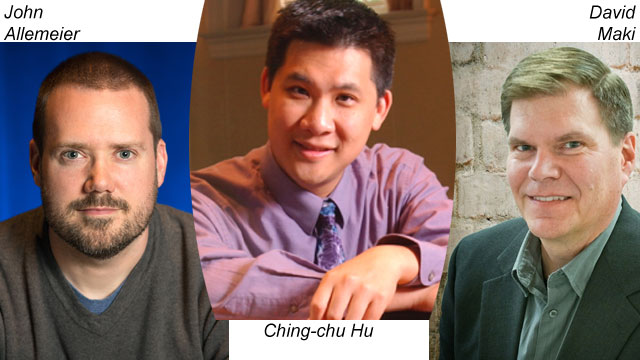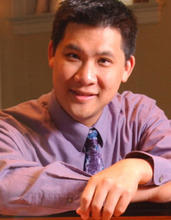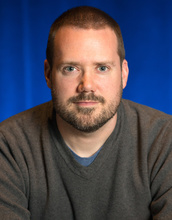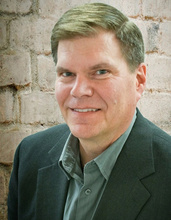
Concert XX
The CNM Ensemble
featuring alumni composers
John Allemeier
Ching-chu Hu
David Maki
Sunday, April 23, 2017, 7:30 p.m.
at the Concert Hall
Program
Elizabeth Upson and Varinia Oyola Rebaza, violas
Matthew Laughlin and Zoraida Oyola Rebaza, violoncelli
Elizabeth Upson, viola
Matthew Laughlin, violoncello
Christine Augspurger, percussion
Joseph Valenti, clarinet
Peter Naughton, percussion
Nicha Pimthong, piano
Joshua Palazzolo, violin
Elizabeth Upson, viola
Matthew Laughlin, violoncello
David Gompper, conductor
Christine Augspurger and Peter Naughton, percussion
Christine Augspurger, percussion
Nicha Pimthong, piano
based on poetry by Malachi Black
I. "Insomnia & So On"
II. "You"
III. "Drifting at Midday"
Anya Egense, flute
Joseph Valenti, clarinet
Nicha Pimthong, piano
Leo Perez, violin I
Jenna Ferdon, violin II
Elizabeth Upson, viola
Matthew Laughlin, violoncello
David Gompper, conductor
Program Notes
Ching-chu Hu
Spheres of Influence
“Your absence has gone through me
Like thread through a needle.
Everything I do is stitched with its color.”
― W.S. Merwin
“He was no longer quite sure whether anything he had ever thought or felt was truly his own property, or
whether his thoughts were merely a common part of the world’s store of ideas which had always existed
ready-made and which people only borrowed, like books from a library.”
― Milan Kundera, Life is Elsewhere
The inspiration for Spheres of Influence comes from the idea that our identity is in part formed by those around us. As individuals, our actions and decisions are often determined by how we were raised, the culture we grew up in, and the influence of our friends. As parents, we hope our words will have lasting effects, to guide our children even when they are out of our sight and we are out of their minds. As artists, we are influenced by our teachers, and their teachers, and master artists from the distant past as well as living artists around us today. Some of these influences can be directly found; others are within our subconscious.
Spheres of Influence is a single movement work in three sections. The musical ideas influence one another, and the various combinations, or “spheres” of instruments - various solos, duos, and trios, influence the remaining instruments. This work also owes as a source of inspiration the music of Tchaikovsky, Vaughan Williams, Copland, Stravinsky, among others. As an Asian-American composer, music of both my cultures are present as well. Spheres of Influence begins with an anticipatory fanfare growing organically out of a single pitch. The middle section features longing melodies on various instruments representing the eventual parting between a parent and a child. The third section is relaxed, as one needs to “let go” and trust that the positive influence we have had will flourish in those around us. Throughout the work motives reoccur and are reconfigured, influencing other sections of the piece.
Spheres of Influence was commissioned by the Walla Walla Chamber Music Festival, Timothy Christie, Founder and Artistic Director, for its sixth season. The premiere was performed by Stephen Miahky and Christina McGann violins ; Julia Salerno and Timothy Christie, violas ; and Felix Wang and Norbert Lewandowski, violoncelli on June 11, 2013.
Three Songs
In 2010 I had the great fortune of meeting poet Malachi Black and was quickly drawn to his words. His poems, which form vivid images in my mind, have such a natural musical flow that I immediately wanted to set them. The poems for Three Songs evoked three distinct feelings in me such that I felt they would work well as a set. In “Insomnia & So On,” there is stillness, a sense of desperation and frustration of being stuck in the endless hours of unrest. The instruments paint a backdrop for the voice, gently pulling and pushing so there is never quite a sense of rest and relaxation. In “You,” accusations fly off the soprano’s tongue as her melody dips and soars, quickly keeping up with the words in the poem. In the last song, “Drifting at Midday,” there is finally a sense of comfort, of quiet realization. The instruments create a consonant foundation for the soprano to find peace through the text. Many thanks to Malachi Black, new friend and collaborator, Jennifer Goltz, soprano extraordinaire, Chris Kim, superb conductor, and the fantastic musicians of Brave New Works for the opportunity to have my music brought to life.

Honors include being named composer-in-residence at the Piccolo Spoleto Festival, guest composer at the American Music Week Festival in Sofia, Bulgaria, being named the Aaron Copland Fellow at the MacDowell Colony for the Arts, the 2nd Annual Secret Opera competition, Fifteen Minutes of Fame Competition, and inclusion on ERM Media’s “Masterworks of the New Era” CD series. His Violin Concerto No. 3: Water Spirit received the citation “Exceptional Concerto” from the American Prize. He has received performances at international festivals and venues, including the Alternativa Festival (Center “DOM”) in Moscow, London’s Wigmore Hall, Chicago Symphony Center’s Orchestra Hall and the John F. Kennedy Center for the Performing Arts.
Born in Iowa City, Iowa, Ching-chu Hu studied at Yale University, Freiburg Musikhochschule in Freiburg, Germany, The University of Iowa, and the University of Michigan. He is active as a pianist and conductor, and wrote the scores for several short award-winning films. Recent projects include a live soundtrack to Charlie Chaplin’s 1925 version of The Gold Rush for symphony orchestra.
Ching-chu Hu is the Richard Luicer Endowed Professor, Chair, and Professor of Music at Denison University. More information can be found at: www.chingchuhu.com.
John Allemeier
The Devil’s Turn (for violin, viola, cello and percussion)
is based on the fiddle reel “The Devil’s Dream.” Many of my compositions draw inspiration from folk music. I find this music intimate yet extremely powerful, which suggests a number of parallels to chamber music. In addition to the fiddle-inspired string writing, the percussion emulates wooden spoons with wood blocks. In the second section, the viola plays a reconstituted version of the fiddle reel accompanied by a soaring violin obbligato and a cello drone. Several of my recent compositions have featured uncommon instrumentations and placing a scaled down drum set along side a string trio continues that trend. The drum solo in the middle allows us to examine this curious addition to the traditional chamber music ensemble a little more closely.
Bolamkin
is based on one of the most horrific folk songs I have ever encountered. There are various version under multiple names; Long Lankin, Bo Lambkin, and Bolamkin. In all versions, the basic story is the murder of a woman and her infant child. Depending on the origins of the version, the motivations of the crime are presented differently. In versions from the British Isles, “Lankin” is a boogey man figure that commits the crime without motive. In the American version, most often cited as the version sang by Frank Proffitt, the murderer is a mason who never received payment for his work. For revenge for the wrong that has been done to him, he murders his employer’s wife and son.
Bolamkin was as fine a mason
As ever laid a stone.
He built a fine castle,
and the pay he got none.
Bolamkin rocked the cradle,
and the faltress she sung,
While the tears and the red blood
from the cradle did run.
My composition focuses on three aspects of the original folk song. The narrative of the folk song serves as the formal design of the piece, that being the composition unfolds parallel to the story. The motive that is derived from the line “the pay he got none” in the folk song appears at key moments in the composition (G, B flat, G, A flat, G). Throughout Bolamkin a “music box” motive is used as a backdrop to reference the nursery where the crime occurs. In the final section of the composition, the music box motive takes over the entire texture with the exception of the “the pay he got none” motive that is presented in the piano. The composition ends as the music box runs out of spring.

Recordings of Allemeier’s music are available on the Albany, Capstone, and Vox Novus labels. His music is published by Carl Fischer Music Publishers, C. Alan Publications, and European American Music. He received his Ph.D. in Composition from the University of Iowa, his Master of Music in Composition from Northwestern University, and his Bachelor of Music in Performance from Augustana College. He has studied in Europe at the 41st and 42nd Internationalen Ferienkurse für Neue Musik in Darmstadt, Germany, and the 6th International Composition Course in Cesky Krumlov, Czech Republic. He currently teaches composition and music theory at the University of North Carolina at Charlotte. More information is available at www.johnallemeier.com.
David Maki
Another Time
was written with this occasion in mind: coming back to the University of Iowa for a concert in the new Voxman Music Building. My first semester at Iowa in 1993 was delayed by a week because of flooding at the old building, which certainly was another time in my life. The title also refers to the layering of different divisions of pulse and rhythmic activity in the piece — sometimes the strings might be moving very slowly while the winds are fast; often groups of instruments are playing simultaneously in compound vs. simple divisions on several levels. Pitch materials are layered as well. The piece opens with three diatonic pitch collections presented consecutively and soon moves to a contrapuntal section where each instrument is playing a different diatonic set, layered on top of one another. The central section of the piece features strata of activity grounded in an unlikely key area before a brief, solo piano passage leads to the final section. I would like to thank David Gompper, the Center for New Music, and the School of Music for the honor of being part of this year's activities to mark the opening of the new Voxman Music Building.
Ilta
opens with gongs, alto flute and vibes in a slowly unfolding texture based on the spectrum of pitches contained in the low C# and E gongs. It is largely consonant in a somewhat modal- sounding area of three or four sharps. The solo flute introduces a more angular, less tonal sounding music that, after a few interruptions, provides the basis for the active middle section featuring C flute and glockenspiel. Slowly, the glockenspiel reintroduces the pitch collection from the first section; after a brief transition, the low gong marks the last section as the opening texture returns, but with C flute. This last section, along with the modal inflections of the entire piece, brought to my mind a specific image: I was in Finland with my dad one summer and each evening the sun would dip just below the horizon and the night would take on a glowing, quiet light, never getting completely dark. Ilta is the Finnish word for night or evening.

Maki has substantial experience as a pianist and collaborative artist performing a variety of genres including classical, jazz, lounge, and new music; he has toured Scandinavia twice as pianist with Amerikan Laulajat (Finnish Male Singers of North America).
Currently, Maki is on the faculty of Northern Illinois University, where he is Associate Professor of Music and serves as Assistant Director of the School of Music, as well as Coordinator of Music Theory and Composition. He holds degrees in composition from Northern Illinois University (B.M.), the University of Iowa (M.A.), and the University of Michigan (D.M.A.).